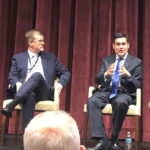The Evangelical Imagination: How Stories, Images & Metaphors Created a Culture in Crisis
By Karen Swallow Prior (Brazos Press)
Stories shape us. Images influence us. Metaphors matter. And when it comes to evangelicals, they not only affect how we view and understand the culture around us, but also how we make an impact on it—for better or worse.
 Karen Swallow Prior—an evangelical Christian, a scholar specializing in Victorian literature and an astute societal observer—explores the cultural trappings of evangelicalism. From Warner Sallman’s ubiquitous Head of Christ to the nostalgic prints of Thomas Kinkade, “Painter of Light,” she points out how much of evangelicals’ penchant for sentimentality and domesticity find their roots in the Victorian era. In fact, she concludes much of what evangelicals assume to be biblical truth actually is Victorian culture.
Karen Swallow Prior—an evangelical Christian, a scholar specializing in Victorian literature and an astute societal observer—explores the cultural trappings of evangelicalism. From Warner Sallman’s ubiquitous Head of Christ to the nostalgic prints of Thomas Kinkade, “Painter of Light,” she points out how much of evangelicals’ penchant for sentimentality and domesticity find their roots in the Victorian era. In fact, she concludes much of what evangelicals assume to be biblical truth actually is Victorian culture.
The Evangelical Imagination piercingly notes how evangelicalism often has elevated empire-building as exemplary—whether national expansionism or the growth of an individual entrepreneur’s wealth and influence. After all, evangelicals easily rationalize greater influence and expansion means greater opportunity for evangelism. Revivalists and missionaries in the 19th century, evangelicals in the 20th century and their Christian nationalist offspring in the 21st century quite willingly answered Rudyard Kipling’s invitation to “Take up the White Man’s burden.”
Horatio Alger’s rags-to-riches stories about the virtues of hard work and diligence continue to shape the evangelical consciousness. Beginning with the Puritan work ethic and its tendency to view material success as evidence of election by God, Prior connects the dots to consumer-oriented churches and a prosperity gospel that considers financial success as a blessing God owes to the faithful. So, evangelical heroes tend to be entrepreneurial megachurch pastors, wealthy televangelists and prominent leaders of parachurch organizations—along with “born again” celebrities and pandering politicians who seek evangelical approval.
The Evangelical Imagination challenges many of the underlying and unspoken assumptions of evangelical Christianity. Prior challenges readers to measure their faith by Scripture and to follow Christ, rather than conform to the expectations of an evangelical subculture.
Ken Camp, managing editor
Baptist Standard















We seek to connect God’s story and God’s people around the world. To learn more about God’s story, click here.
Send comments and feedback to Eric Black, our editor. For comments to be published, please specify “letter to the editor.” Maximum length for publication is 300 words.